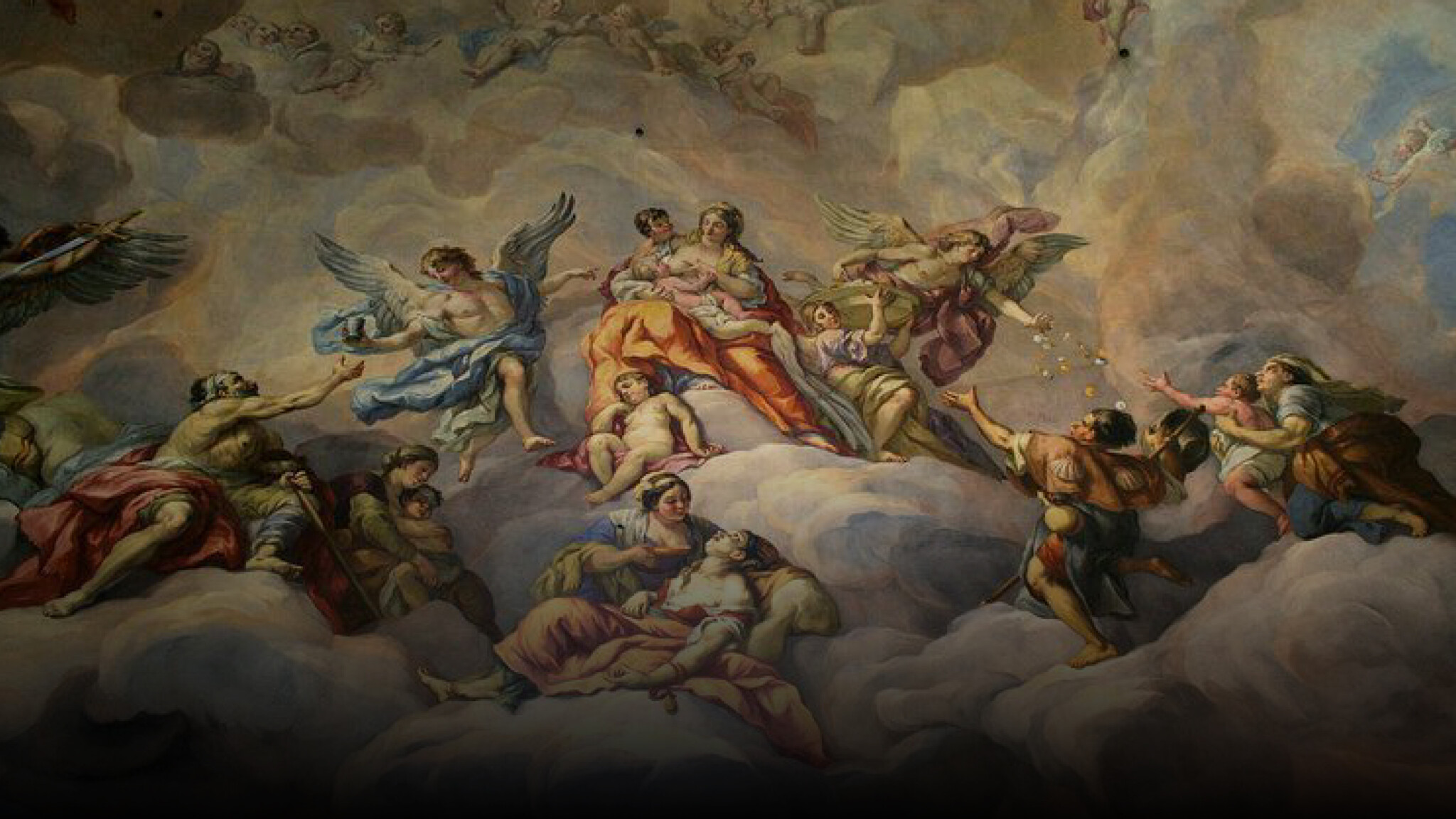
Dome fresco by Johann Michael Rottmayr (1656 – 1730)
The recent debate between U.S. Vice-President J.D. Vance and former British MP Rory Stewart brings to the fore one of the defining tensions of our age: the clash between rooted national identity and the universalist impulse of modern liberalism. At its core is a question of profound ethical and political significance: does Christian love demand an equal concern for all, or does it prescribe a hierarchy of obligations?
Vance articulates a view grounded in what he terms an ordo amoris – an order of love – whereby ethical obligations radiate outward in concentric circles: first to God, then to oneself, followed by family, community, and nation.
Enjoy independent, ad-free journalism - delivered to your inbox each week
This notion, deeply embedded in classical and Christian thought, suggests that physical and cultural proximity matters in the moral calculus. Duties are not equal and undifferentiated; they are shaped by the particular relationships and commitments that bind us to others.
Stewart, by contrast, champions the cosmopolitan ideal that has, for the past fifty years or so, come to define the self-understanding of multicultural societies such as Canada, Australia, and the United Kingdom. This universalist ethos, which extends moral concern to all humanity irrespective of nation or kinship, finds its intellectual roots in Enlightenment liberalism and its institutional embodiment in international humanitarianism. Stewart’s view, which accords with much of the contemporary liberal consensus – including that of the current Pope – dismisses notions of “love of one’s own” as a vestige of tribalism, an impediment to moral progress.
Yet, as Bernard Williams, the esteemed British philosopher, reminds us, moral philosophy must grapple with the reality of human attachments. Williams was highly skeptical of the abstraction central to Kantian ethics, which asserts a universal moral law detached from specific personal relationships. He saw in this an impossible demand that fails to reckon with the thick moral-ties that shape human life. To ask a man to treat his own child and a stranger with equal concern, Williams suggested, is not a triumph of reason but a misunderstanding of human nature.
The idea that my family, friends, colleagues, or even the broader political community to which I belong are morally arbitrary and carry no special weight strikes most of us as a puzzling notion. How can it be that those closest to me have no greater claim on my moral considerations than individuals whose lives will never intersect with mine?
The idea that my family, friends, colleagues, or even the broader political community to which I belong are morally arbitrary and carry no special weight strikes most of us as a puzzling notion. How can it be that those closest to me have no greater claim on my moral considerations than individuals whose lives will never intersect with mine?
As Williams suggests: “It has been in every society a recognizable ethical thought, and remains so in ours, that one can be under a [moral] requirement … simply because of who one is and of one’s social situation. It may be a kind of consideration that some people in Western societies now would not want to accept, but almost everyone in the past has accepted it, and there is no necessity in the demand that every requirement of this kind must, under rational scrutiny, be … abandoned.”
Similarly, the late Sir Roger Scruton introduced the concept of oikophilia: the love of home, place, and tradition. For Scruton, a genuine sense of responsibility toward others arises from our deep-rooted attachment to particular people, places, and traditions, rather than from an abstract and impersonal commitment to humanity as a whole. He cautioned that the universalist impulse, when detached from the lived experience of community and the concrete bonds that shape our moral intuitions, risks eroding the very foundations of social cohesion. In prioritizing abstract principles over the organic ties of family, culture, and shared history, he argued that we may inadvertently weaken the structures that foster real moral-obligations and mutual trust.
This debate has immediate and practical implications, particularly for national identity and immigration policy in America, Britain, Canada, and other Western nations. It cuts to the heart of the social contract: does a government exist primarily to serve its own citizens, or does it bear an equivalent duty to all people, regardless of origin? Should love of one’s own country or people take priority over a broader love for humanity?
Help Ensure our Survival
Vance’s perspective – rooted in a hierarchy of responsibilities – insists that the state’s first duty is to its own people, ensuring their cultural continuity and social well-being before extending its concern to outsiders.
The historical record suggests that nations prioritizing a universalist ethic in migration policy often struggle with integration and preserving a coherent cultural identity. Canada, for instance, has long championed its multicultural model, embracing a vision of citizenship that echoes Stewart’s cosmopolitanism.
Yet this model has led to questions about national cohesion and the sustainability of a shared cultural framework. If national identity is merely a legal status rather than a shared inheritance, then what binds a people together? What prevents a nation from devolving into little more than a marketplace, where individuals coexist but do not share a common life?
Europe faces a similar predicament. The influx of mass migration has reignited debates about social cohesion, economic sustainability, and the preservation of national traditions. Proponents of the Vance view argue that an indiscriminate acceptance of newcomers – without regard for cultural and historical continuity – erodes the very social bonds that make a nation worth immigrating to in the first place. Meanwhile, those who advocate Stewart’s cosmopolitanism counter that national identity must evolve to reflect a world increasingly defined by mobility and interconnectedness.
At stake in this debate is not merely policy but the more profound question of what it means to belong. Advocates of an unbounded universalism often fail to recognize that humans do not live in an abstract world of pure moral principles; they live in communities, within historical traditions, and among people with whom they share language, memory, and custom. The impulse to extend charity to all is noble, but when severed from the rootedness of place and people, it risks collapsing into a sentimentality that weakens, rather than strengthens, social bonds.

The JD Vance debate on national identity and migration highlights the tension between rooted loyalties and liberal universalism’s moral claims.
This does not suggest that nations should turn inward and abandon their humanitarian commitments. Rather, it is to recognize that charity, like all the virtues, must be exercised within a moral order that sustains and strengthens the communities in which it takes root. A government that neglects its own people in the name of an abstract universalism is not acting virtuously; it is abdicating its primary responsibility.
The tension between universalist ideals and particular obligations is unlikely to be resolved anytime soon. Yet Williams and Scruton remind us that without a strong sense of national and cultural belonging, the impulse to extend moral concern to all can become untethered, undermining the conditions that make genuine generosity possible.
If Western nations are to navigate this debate wisely, they must recognize that national identity is not an obstacle to moral progress but a precondition for it. A healthy society understands the order of love, not as a rejection of others but as an acknowledgment that our deepest moral obligations begin with those closest to us. As has been recognized since ancient times, only by preserving what is particular can we meaningfully engage with what is universal.




Comments (0)
Only supporting or founding members can comment on our articles.